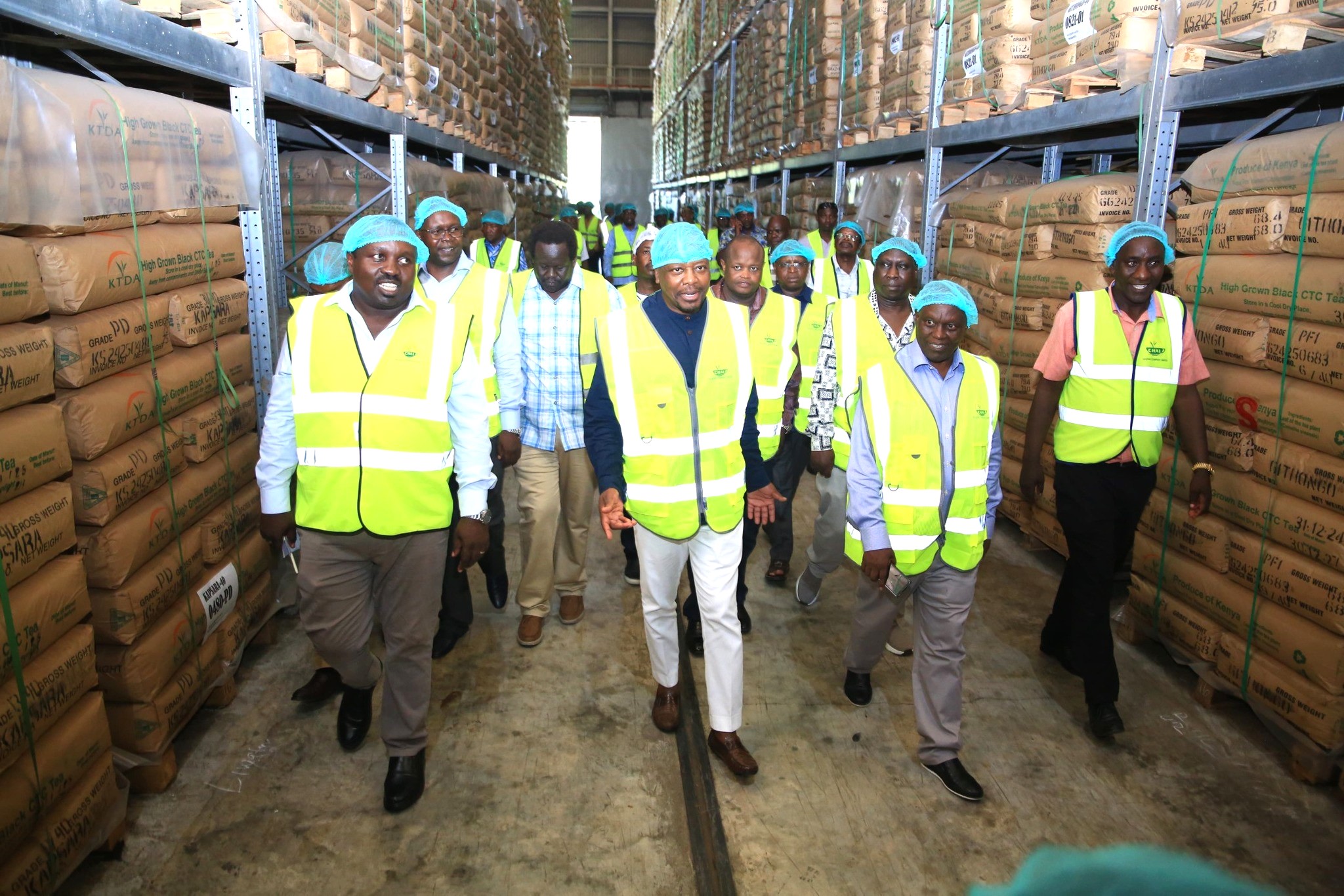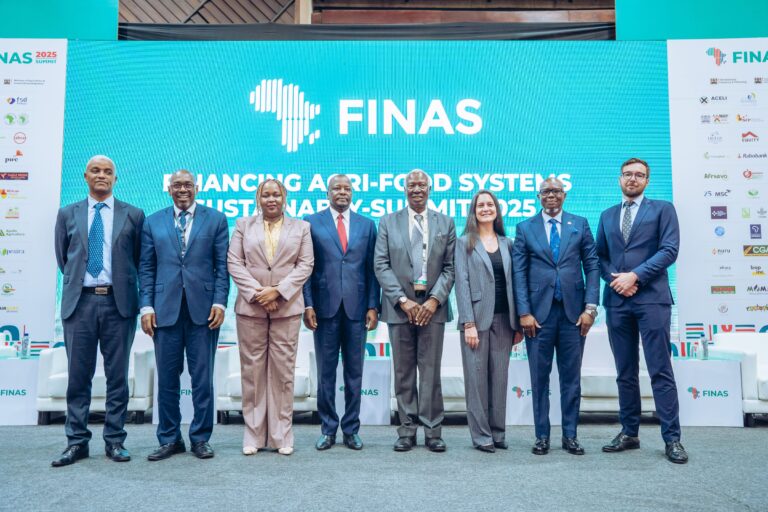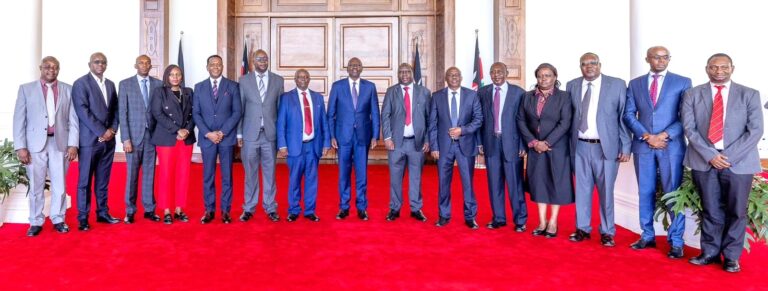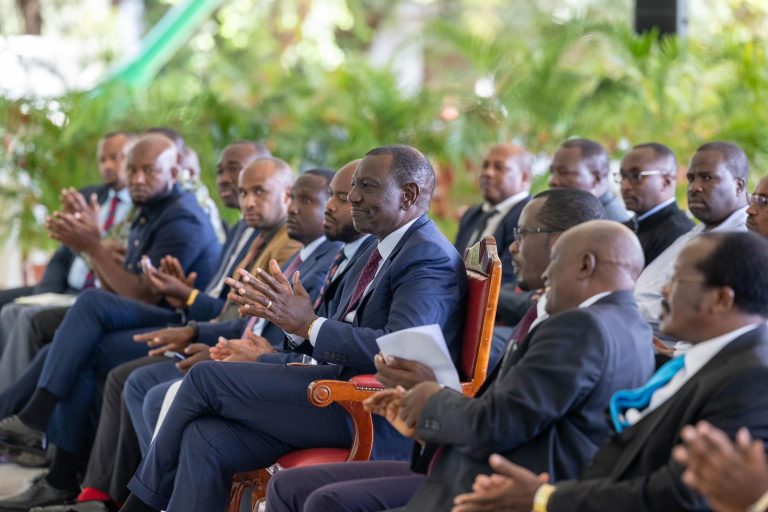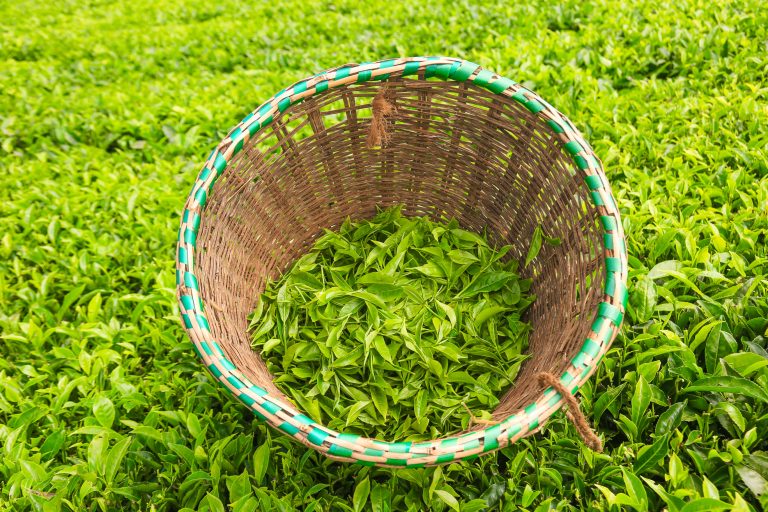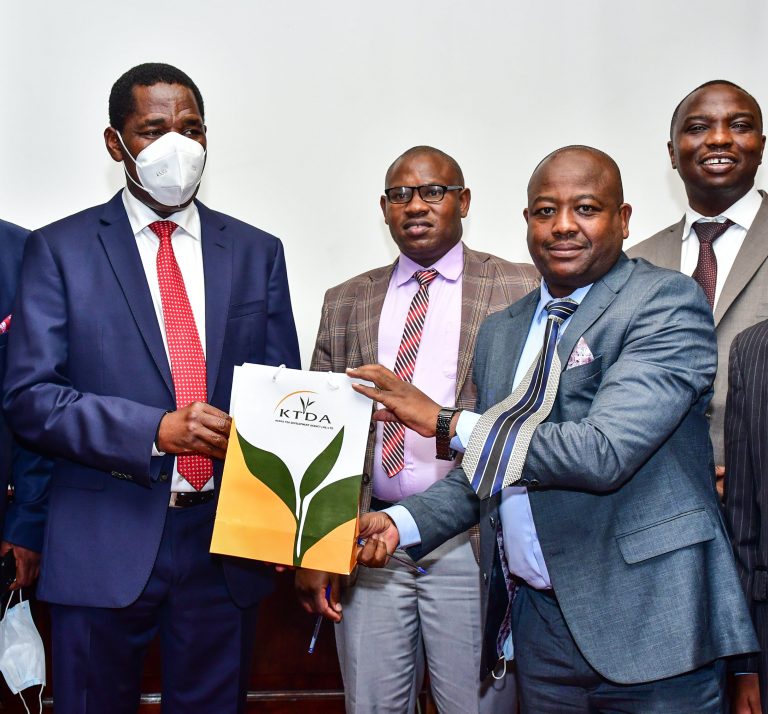All the 142 tea factories in Kenya will soon be permitted to sell their produce directly to international buyers without the involvement of intermediaries, Cabinet Secretary for Agriculture and Livestock Development Mutahi Kagwe has announced.
Speaking during the launch of International Tea Day celebrations at Gitugi Tea Factory in Othaya, Nyeri County, Kagwe said the move is part of a broader reform agenda to boost Kenya’s tea industry’s sustainability and global competitiveness.
“I am happy to report that, shortly through reforms being spearheaded by my Ministry, we will soon be allowing tea factories to sell their teas directly into the international markets without intermediaries,” said Kagwe. “This strategy will supplement the Government of Kenya’s marketing efforts, therefore translating to increased earnings for our tea farmers.”
The CS said that the Ministry has intensified efforts to penetrate emerging global markets, with plans to send a high-level delegation to key destinations including the Far East, Middle East, China, Russia, and India. The team will comprise representatives from the Tea Board of Kenya (TBK), the Kenya Tea Development Agency (KTDA), and the East African Tea Trade Association (EATTA).

In addition, Kagwe announced the introduction of an orthodox tea auction window under the Integrated Tea Trading System (ITTS), which will be overseen jointly by EATTA and the TBK.
The auction, set to open in June, is expected to ease the burden of surplus stock, with more than 100 million kilograms of unsold tea currently held at KTDA warehouses in Mombasa as of July 2024.
“The orthodox tea auction will set the stage for a reliable distribution outlet that is expected to enhance renewed motivation for sustainable product diversification from Cut, Tear and Curl (CTC teas) to orthodox teas,” Kagwe explained. “This is a new initiative, and it will have a serious impact on the pricing of tea in our country and overseas.”
This year’s International Tea Day is themed “Tea Industry Sustainability—Looking into the Future”. During the event, Kagwe reiterated his ministry’s commitment to ensuring farmers benefit fully from their produce.
“I wish to reiterate my ministry’s key focus in ensuring that the tea sector is supported and protected,” he said. “I want to particularly emphasize the support we are giving in terms of the introduction of ICT and technology, soil testing and commensurate support through TBK activities and ensuring that the farmer ends up with most of the money from the tea sales from the international market.”
He added: “Kenya has the best quality tea globally, and we therefore need to retain the good quality so that we can continue to fetch the best prices. That is why I am insisting that the quality of tea that leaves our borders must be the best quality, and the reputation of Kenya as the source of the best tea must be maintained at all costs.”
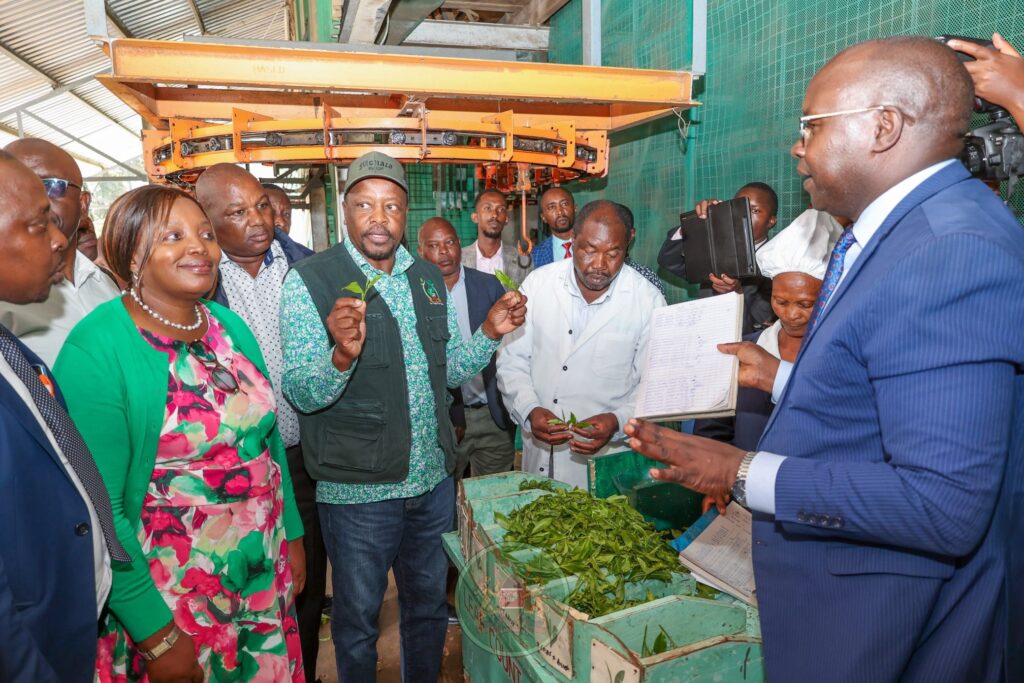
TBK CEO Willy Mutai expressed confidence that the sector interventions would lead to better prices and more stable markets for Kenyan tea. He noted that the country earned KSh 215 billion from international tea sales last year, supported by an increase in production from 570 million kilograms in 2023 to 598 million kilograms in 2024.
“We are working hard to ensure that we sell all the orthodox teas,” said Mutai. “If we continue leveraging our volumes, the price could even triple what we are currently selling in our orthodox teas. Currently, the orthodox tea is fetching between USD 3.4 – USD 4, and I am sure if we remain persistent, this could go up to USD 10 in the Chinese market.”
KTDA Zone 4 Director David Ndung’u praised the CS for opening new markets and working to reclaim lost ones, notably Iran. He also welcomed government proposals in the 2025/2026 Finance Bill to exempt tea packaging materials from taxation.
“Kenyan tea is packaged by the Philippines in Dubai at three times less than what it would cost us to do it locally,” he said. “The tax exemptions on packaging materials will directly affect the farmer because, by going to Dubai, we used to lose jobs and revenue, which will now go back to the farmer.”
Ndung’u further proposed removing the 16 per cent Value Added Tax (VAT) on local tea sales to boost domestic consumption, which currently accounts for only 5 per cent of total tea revenue.
“This exemption will encourage a spike in local tea sales from the current 5 per cent. One of the biggest challenges hindering local consumers from buying our teas is these taxes that make it expensive,” said Ndung’u.
He also urged the government to eliminate inter-county trade barriers and improve road infrastructure, which he said continues to inflate production costs.
“Poor roads increase the cost of production because factories have to incur additional costs of either repairing vehicles damaged by poor roads or purchasing new vehicles,” he said. “Our tea could be fetching the farmers a lot of money, but the high cost ultimately prevents them from enjoying it.”


